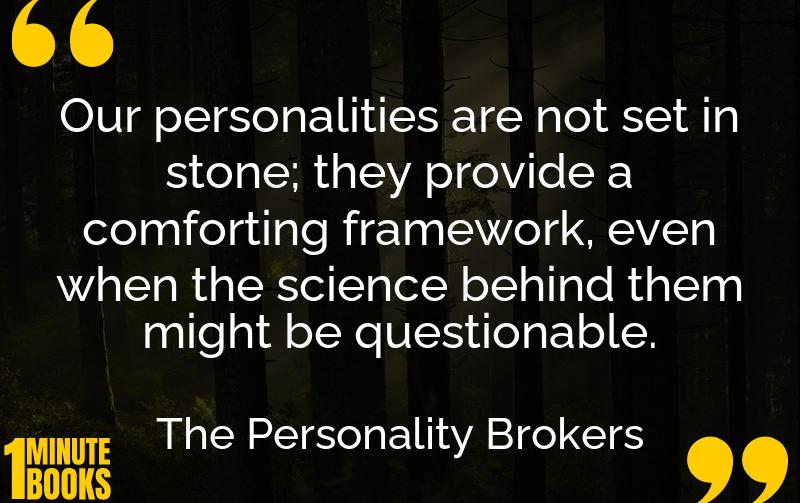
The Personality Brokers’ explores the history of the Myers-Briggs Type Indicator, revealing its controversial origins and continued popularity.
Main Lessons
- The Myers-Briggs Type Indicator (MBTI) was created by Katharine Cooks Briggs and Isabel Briggs Myers during WWII.
- The MBTI is based on Carl Jung’s theories, segmented into four dichotomies: Introversion/Extraversion, Intuition/Sensing, Feeling/Thinking, Judging/Perceiving.
- Despite lacking scientific backing, MBTI is widely used for self-discovery and personal growth.
- The test’s popularity is rooted in its nonjudgmental classification of different personality types, each possessing unique strengths and weaknesses.
- Katharine Briggs championed Jung’s theories, introducing them to a wider American audience through her writing.
- Briggs’ work contributed to the rise of self-help literature, appealing to 1920s America’s demand for psychological insight.
- The MBTI’s simplicity allows for easy understanding but risks oversimplifying complex human traits.
- Critics argue that the MBTI’s lack of validity stems from its reliance on mythologized concepts.
- Sociologists like Theodor Adorno criticized personality typing as potentially divisive and aligned with fascist ideologies.
- The test remains popular for providing a structure of self-justification and acceptance, despite its controversial roots.
- Merve Emre’s ‘The Personality Brokers’ traces the creation and widespread adoption of the MBTI, shedding light on its rise and relevance.
- The book invites readers to reflect on their own views regarding personality typologies and their implications.








